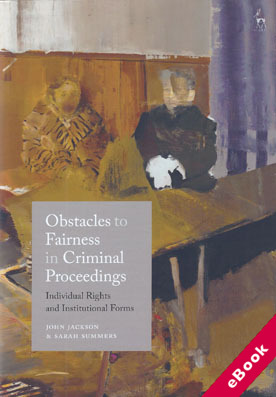
The device(s) you use to access the eBook content must be authorized with an Adobe ID before you download the product otherwise it will fail to register correctly.
For further information see https://www.wildy.com/ebook-formats
Once the order is confirmed an automated e-mail will be sent to you to allow you to download the eBook.
All eBooks are supplied firm sale and cannot be returned. If you believe there is a fault with your eBook then contact us on ebooks@wildy.com and we will help in resolving the issue. This does not affect your statutory rights.
This volume considers the way in which the criminal law's current focus on individual rights may constitute an obstacle to ensuring fairness in criminal proceedings. Scholars from the disciplines of law, philosophy and sociology challenge various normative assumptions underpinning our understanding of fairness in criminal proceedings.
The increasingly cosmopolitan nature of criminal justice forcing different legal systems to interact with each other as they attempt to combat crime beyond national borders has accentuated the need for systems to seek legitimacy beyond their domestic traditions. Procedural fairness expressed in terms of the right to a fair trial in provisions such as Article 6 of the European Convention on Human Rights (ECHR) has emerged across Europe as the principal means of guaranteeing the legitimacy of criminal proceedings.
The consequence of this is that criminal procedure doctrines are framed overwhelmingly in 'constitutional' terms - the protection of defence rights is necessary to restrict and legitimate the state's mandate to prosecute crime. Yet there are various problems with relying solely or predominantly on defence rights as a means of ensuring that proceedings are 'fair' or legitimate and these issues are rarely discussed in the academic literature.